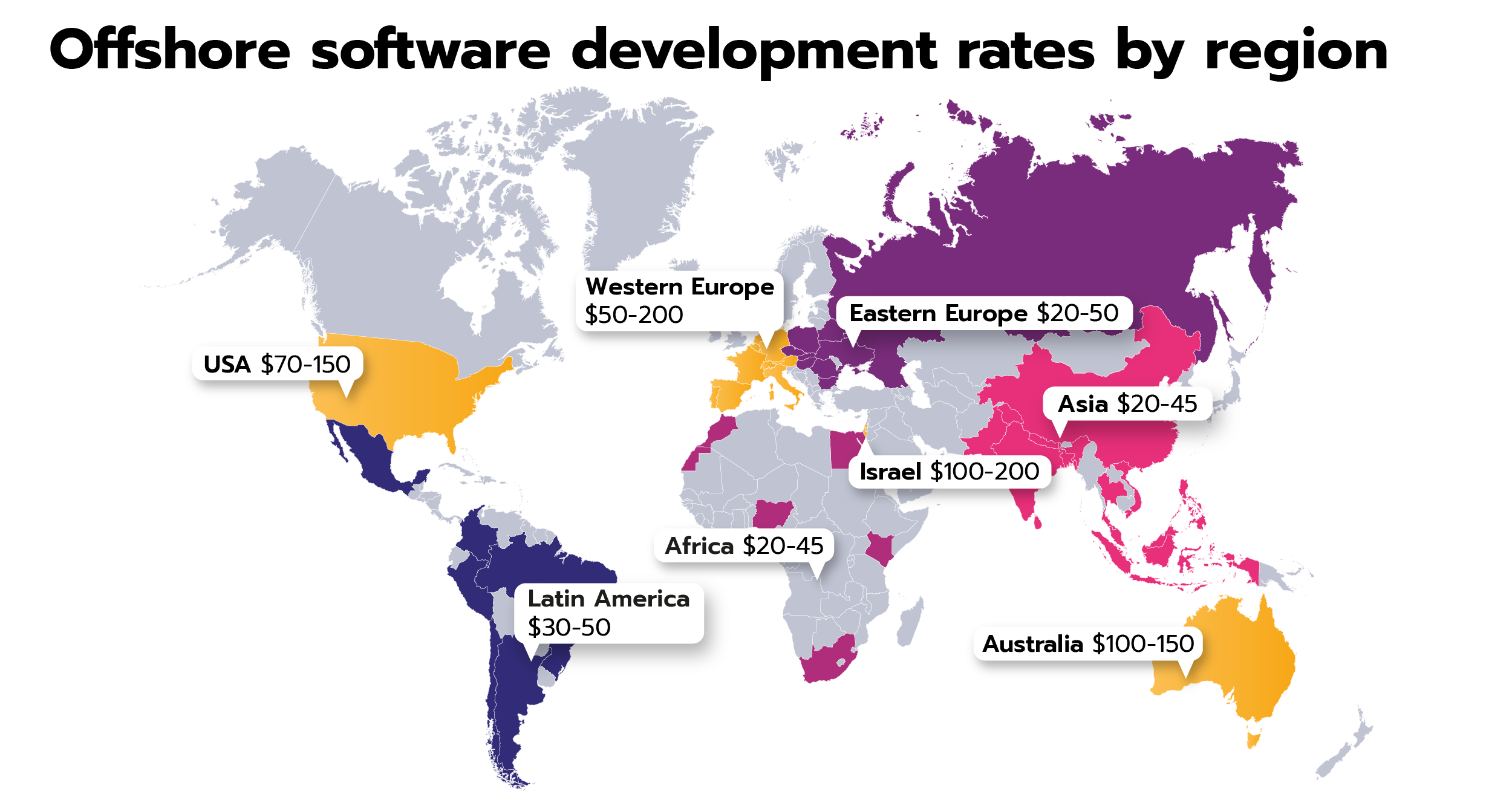Software development offshoring involves outsourcing development tasks to countries with cost-effective resources and skilled professionals, revolutionizing project management strategies. As businesses seek to leverage global talent pools, the concept of offshoring software development has gained significant traction in the industry.
Introduction to Software Development Offshoring

Software development offshoring refers to the practice of outsourcing software development tasks or projects to companies or teams located in foreign countries. This strategy is often adopted by businesses to take advantage of cost savings, access to specialized skills, and around-the-clock development cycles.
In the context of software development, offshoring allows companies to tap into a global talent pool, leveraging the expertise and resources available in different parts of the world. This approach helps organizations to scale their development efforts, meet project deadlines, and reduce overall operational costs.
Countries Known for Software Development Offshoring
- India: India has established itself as a leading destination for software development offshoring, with a large pool of skilled IT professionals and a strong reputation for quality and cost-effectiveness.
- China: China has also emerged as a key player in software development offshoring, offering competitive pricing and a rapidly growing tech industry.
- Philippines: The Philippines has become a popular choice for offshoring software development due to its English proficiency, cultural affinity to Western countries, and competitive labor costs.
- Eastern European countries: Countries like Ukraine, Poland, and Romania have gained recognition for their highly skilled software developers and favorable business environments for offshoring.
Advantages of Software Development Offshoring
Offshoring software development can offer several advantages to businesses looking to optimize their operations and enhance their competitiveness in the global market. One key advantage is the cost-effectiveness that offshoring provides, allowing companies to access skilled professionals at a fraction of the cost compared to hiring locally. This can result in significant savings on labor expenses and overall project costs.
Access to Global Talent Pool
Offshoring software development enables companies to tap into a diverse and talented pool of professionals from around the world. This can provide access to specialized skills, expertise, and innovative ideas that may not be readily available locally. By leveraging the global talent pool, businesses can build high-performing teams and accelerate the development process, leading to faster time-to-market and competitive advantage.
Challenges of Software Development Offshoring
Offshoring software development projects can present various challenges that need to be carefully managed in order to ensure successful outcomes. These challenges can range from communication issues to cultural differences impacting the project dynamics.
Communication Issues in Offshoring
Communication is a critical aspect of any software development project, and when teams are located in different countries, language barriers and time zone differences can significantly impact effective communication. Misunderstandings, delays in feedback, and lack of clarity in requirements can all arise from communication challenges in offshoring scenarios.
Cultural Differences Impacting Projects
Cultural differences can also pose challenges in offshoring software development projects. Variances in work styles, attitudes towards authority, and approaches to problem-solving can lead to conflicts and misunderstandings within the team. It is essential to address and bridge these cultural gaps to foster a cohesive and collaborative working environment.
Best Practices for Successful Software Development Offshoring

When engaging in software development offshoring, it is crucial to follow best practices to ensure a successful outcome. This involves selecting the right offshore development partner, implementing effective project management strategies, and establishing clear communication channels.
Selecting the Right Offshore Development Partner
Choosing the right offshore development partner is a critical decision that can significantly impact the success of your offshoring venture. Consider the following factors when selecting a partner:
- Assess their technical expertise and experience in your industry.
- Evaluate their communication skills and cultural compatibility with your team.
- Review their past projects and client testimonials to gauge their track record.
- Ensure they have robust security measures in place to protect your sensitive data.
Effective Project Management Strategies
Implementing strong project management practices is essential for ensuring that your offshoring project stays on track and delivers results. Here are some strategies to consider:
- Define clear project goals, scope, and timelines from the outset.
- Establish regular communication and reporting mechanisms to track progress.
- Assign dedicated project managers on both sides to oversee the development process.
- Utilize project management tools and technologies to streamline collaboration and workflow.
Establishing Clear Communication Channels
Clear communication is key to the success of any offshoring project. To establish effective communication channels, consider the following:
- Set up regular meetings and calls to discuss project updates, challenges, and next steps.
- Use a combination of communication tools such as email, instant messaging, and video conferencing.
- Clarify roles and responsibilities to avoid misunderstandings and ensure accountability.
- Create a communication protocol outlining preferred methods of communication and escalation procedures.
Outcome Summary

In conclusion, software development offshoring presents a compelling opportunity for organizations to enhance efficiency, reduce costs, and tap into diverse skill sets worldwide. By navigating through the challenges and implementing best practices, businesses can optimize their development processes and stay competitive in a dynamic market environment.
FAQ Corner
What are the key benefits of software development offshoring?
Offshoring software development allows access to a wider talent pool, cost-effectiveness, and enhanced project scalability.
How do cultural differences impact offshoring projects?
Cultural differences can lead to miscommunications, work style clashes, and differing expectations, requiring effective cross-cultural management strategies.
What is the significance of clear communication channels in offshoring?
Clear communication channels are crucial to ensure project alignment, coordination, and successful outcomes in offshoring collaborations.
